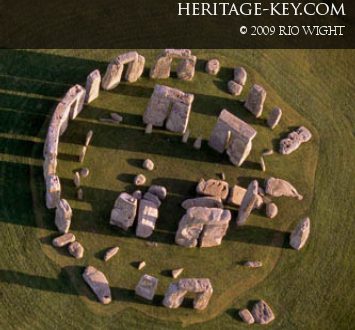The Explorers Club’s Great Britain Chapter was founded as late as 1977, but its first chairman, Bill Egerton Sykes, was thoroughly invested in one of the great ancient mysteries – Atlantis. A British intelligence officer, Sykes had a lifetime fascination concerning Atlantis. He lectured to the Explorers Club in New York in 1966 on this subject in 1966, and continued to investigate and gather evidence for the existence of this mythical lost continent until his death in 1983.
These days, the Explorers Club, which doesn’t have a permanent venue in London but meets in various places four or five times a year, is interested in all aspects of the ancient world, and its members are haring off all over the place to look at archaeological sites, as well as geographical and geological phenomena. Current chairman Barry Moss told me “Today, there’s a lot going on; as much as there ever was.”
The Explorers Club was founded in New York in 1904, and describes itself as “an international multidisciplinary professional society dedicated to the advancement of field research and the ideal that it is vital to preserve the instinct to explore.” The Club provides expedition resources including funding, online information, and member-to-member consultation. The Club’s annual dinners honor accomplishments in exploration. Also, those who join the Club get access to a global network of expertise, experience, technology, industry, and support.
The Explorers Club actively encourages public interest in exploration and the sciences through its public lectures program, publications, travel program, and other events. The Club also maintains Research Collections, including a library and map room, to preserve the history of the Club and to assist those interested and engaged in exploration and scientific research. With more than 3,000 members worldwide already, the Explorers Club invites applications from “individuals who have gotten their hands dirty and their feet wet working in the field as participants in one or more documented scientific expeditions.”
 The British Club Chapter has some 80 members, and Moss told me that those interested in joining would need “some sort of scientific expedition experience,” in order to be considered for membership. “Not pure travelers or adventurers,” he specified. “You need to have done something that’s a first that hasn’t been done before.”
The British Club Chapter has some 80 members, and Moss told me that those interested in joining would need “some sort of scientific expedition experience,” in order to be considered for membership. “Not pure travelers or adventurers,” he specified. “You need to have done something that’s a first that hasn’t been done before.”
Climbing Everest for the sake of, for example, wouldn’t qualify, but finding a new route up Everest would. He’s also eager to discourage amateurs with metal detectors, say, as they often end up despoiling archaeological sites.
At the Club’s annual dinner last October, members were treated to a talk from Mikael Strandberg, who specializes in long-distance expeditions, such as the one he did recently along the Kolyma River in Siberia, during which he planted Explorers Club flag number 95. Moss says this year’s speaker isn’t booked yet.
The Club encourages its members to explore the ancient world. “There’s a real draw to exploring things from the past,” said Moss, but he sounds a note of caution. “If it’s adding to history or knowledge of the world, then it’s important that these things are pursued, but only if they’re done through the proper channels.”
“If it’s adding to part of human knowledge, it’s part of our culture. Obviously, that’s something the British have always been pretty good at.”
Membership fees are about £150 a year. The Club Chapter has associations with the Travellers Club in Pall Mall, London; and is working on an arrangement with the Frontline Club in London too. Many members of the Explorers Club are also members of the Travellers Club, the Royal Geographical Society or the Scientific Exploration Society. “There’s a lot of cross-pollination,” Moss explained.





